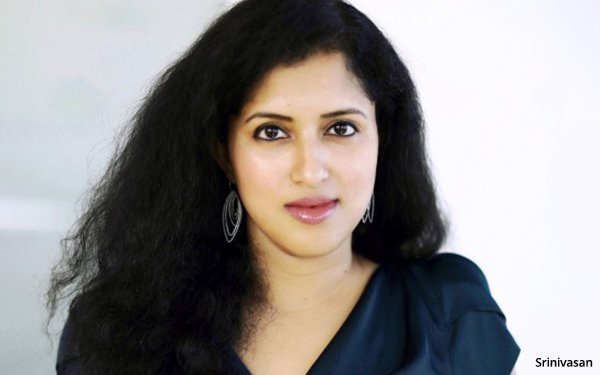By Zile Singh
(October 1912 – September 1989)
“Great poetry has the power to start a fire in a person’s life”.
We are called ‘human beings. Why? Because we are in the process of ‘becoming’. Knowingly or unknowingly, we are evolving every day. We are being made better human beings by nature and by our own concerted efforts. Nature creates conditions. Some favourable, some unfavourable. Favourable we accept, unfavourable we reject. We try through scientific and psychological means to alter those unfavourable conditions. The word ‘psychological’ connotes ‘religious’ as well. In this way man has evolved from dark ages to the present ‘supersonic or jet-speed age’. Science, day in and day out, is on its heels to create even more favouravle and cozy conditions for human being to enjoy and be happy. Religions also have tried to play their role to make man ‘contented, grateful, fearless and friendly’. Today, despite combined efforts of science and religion, man is not happy in its real sense. He is discontented, ungrateful, fearful and unfriendly. He is living in a state of anxiety and inferioritycomplex. That anxiety can be of his ‘visible minority status’ or ‘caste inferiority status’. Enlightened thinking only can bring a pause to such human traits as negative thinking, feeling of discrimination and left out. Critical thought process empowers man to overcome unfounded belief and suspicion. In the darkness of ignorance man thinks that he is a sinner for generations and the system is working against him.
Literature also has played a significant role in evoking human sensibilities according to the conditions prevailing at a certain time. Literature, in the form of prose and poetry has tried not only to make people feel at ease but also create a stir in human mind to agitate and throw away the yoke of anxiety, bonded labour and slavery; political, economic. social or else. “Great poetry has the power to start a fire in a person’s life”.
Here, poetry of Gurdass Ram Aalam, almost an unlettered brick kiln labourer from Punjab is worth mentioning. He wrote mainly against the oppression of the haves on the haves-not. Not having tasted the taste of freedom or independence of India from the British colonialism, he, in his own satirical style penned a poem entitled “Azadi’ immediately after we got independence. Azadi is one of his most popular poems. People from Punjab make use of it to play around the significance of Azadi. Generally, a large section of society from Punjab is of a viewthat Punjab has, despite numerous sacrifices during freedom movement, gotnothing from Azadi. They ascribe that the day-to-day worsening situation of Punjab is due to the policies of the Central government(s).
Some lines of Gurdass Ram Aalam’spoem are:
Kiewn bhai Nihalia, Azadinahivekhi?
Na bhai bharava, na khadi, navekhi.
Mein Jaggutaunsunaya, Ambalekhari see.
Bari bhidusedeudalekhari see.
—— —- poem continues.
Unofficial translation runs like –
“Nihale, have you seen Azadi? He said, “No brother, neither haveI eaten it nor have seen it. I heard from Jaggu that it was standing at Ambala. There was crowd around it. …….”
To celebrate Aalam’s 110th birth anniversary, a poetry programme was arranged on October 9, at 7050, Senior Centre Surrey, Canada by Principal(retd.) M.C. Kaler. He founded Lok Kavi Gurdass Ram AalamSahit Sabha, Canada in 2018. Speakers spoke about the life of Lok Kavi Aalam and his poetry. Aalam belonged to unprivileged class of society. In comparison, Aalam stood shoulder to shoulder with other prominent Punjabi poets of that era. One speakerkept Aalamon a higherpedestal than that of popular Punjabi singer Gurdass Mann. Another termed his poem on Azadi as ‘time specific’ only. Today, after 75 years of Independence of India, many people of unprivileged class occupy a prominent place in politics, economics, and bureaucracy of India. In today’s circumstances, Azadi cannot be mocked at. It is because of Azadithat one-fourth officers in All India Services and the Provincial Civil Servicesarefrom Scheduled Castes and Scheduled Tribes. Azadi for them has proved a panacea from ‘Servitude to Freedom’. It has a taste of ‘nectar’. So far three prominent Dalits have held the post of ‘The President of India.’ Many have occupied the chairs of Union Ministers, Speakers of Lok Sabha, Governors and Chief Ministers. However, it is a matter of concern that incidents of class-based discrimination stilloccur. Let us put a stop on that ill mentality of a few disgruntled people here and there. Let the unfounded anxiety and suspicion that we got nothing from Azadi be wiped out. Lately, the Other Backward Classes also have their hay days. We are in the process of ‘Becoming’. All have been benefitted from Azadi. The need of the day is that the rulers also need to protect Azadi with responsibility and answerability because Azadi is the oxygen of the soul.

Azadi expects all of us to be humble and not haughty.
Before demanding our rights, let us perform our duty.
Protectors of the rights (Azadi) must be fair and square.
While holding a public post, let us not earn income unfair.
Today, Aalam must be holding his head high in heaven to see that his poetry has travelled beyond the borders of Punjab. His voice echoes in countries like. Canada, UK, USA, etc. Also, the privileged class from Punjab to whom Aalam was an untouchable once, are praisinghim proudly.
Credit goes to the programmeorganizer, PrincipalMalook Chand Kaler, prominent speakers, attendees of both sexes and the management of the Senior Centre, Surrey.
- Dedicated to Azadi Ka Amrit Mahotsav.
Zile Singh is a well respected Columnist, Writer and a Vipassana Meditater. He has a Post-Graduate Diploma in Human Rights. He can be reached at zsnirwal@yahoo.ca

















9 Comments
Chicago Police Department Badges
3 months agoThanks for sharing your knowledge on this topic. It’s much appreciated.
Lucky Dreams mobile
2 months agoAus diesem Grund gibt es derzeit keine legalen deutschen Online-Casinos ohne Limit.
Um eine solche Lizenz zu erhalten, müssen die Casinos Einsatzlimits von 1 € pro Spin und Einzahlungslimits von 1000 € pro Monat umsetzen. Nein, in Deutschland dürfen derzeit nur Anbieter mit offizieller Lizenz der
Gemeinsamen Glücksspielbehörde der Länder (GGL) Glücksspiele im
Internet anbieten. Dann schreibe uns eine E-Mail an -casinos.de
Plus, es gibt immer wieder spannende Freispiele, die dir das Spielerlebnis versüßen. Schon der Willkommensbonus war riesig, und die Auswahl
an hochkarätigen Spielen sorgt dafür, dass es nie langweilig
wird. Von hunderten von Slots über klassische Tischspiele bis hin zu
einem fantastischen Live-Casino-Bereich – hier findest du alles, was das Spielerherz begehrt.
Neben der Hauptbeschränkung mit dem monatlichen Höchstbetrag von 1000 €, den Sie auf Ihr Spielerkonto einzahlen dürfen, gibt es
weitere Einzahlungslimits während des Spiels, und zwar von 1
Euro pro Spin oder Spielzug. Diese Casinos führen auch Einzahlungslimits als Maßnahme für verantwortungsvolles Spielen und diese Limits können den Geldbetrag, den Spieler am
Tag, in der Woche oder in einem Monat auf ihr Online-Glücksspielkonto einzahlen können, begrenzen. So können bei einigen Online-Casinos die Einzahlungslimits von der Plattform vorgeschrieben werden, während andere Casinos den Benutzern erlauben, ihre eigenen Limits freiwillig festzulegen. Zunächst einmal möchten wir bei GambleGuys Deutschland unterstreichen, dass die Einzahlungslimits
für Online-Casinos je nach Plattform variieren. Wir werfen dabei direkt einen Blick auf beste Online Casinos ohne Limits in unserer Top-Liste, bevor, wir erst einmal
die Frage antworten werden, was eigentlich die Einzahlungslimits der Casinos sein können.
References:
https://online-spielhallen.de/izi-casino-auszahlung-ihr-leitfaden-zum-reibungslosen-geldabheben/
NV Casino beste Auszahlung
2 months agoWunderino Aktionscode 2024
References:
https://online-spielhallen.de/ihr-umfassender-leitfaden-zum-spinanga-casino-bonus-code/
top casino VIP tiers
2 months agoAs such, we never promote unsafe sites or encourage irresponsible play.
At Casino.org, we want to help players make better
decisions. Hannah Cutajar checks all content to ensure
it upholds our commitment to responsible gambling.
Moreover, almost all of them are located near the beach,
giving you a chance to enjoy a beautiful view while
sipping a nice cocktail and spinning the reels of your
favorite slot machine. Wynn Las Vegas Casino
is not far behind while Mandalay Bay Casino is the third
biggest land based casino in Las Vegas. While CasinoUSA.com does it best to keep you updated about gambling destinations in the country,
laws may change from time to time.
This historic location has an enormous 526,000 sq.ft casino floor with over 2,800 slot machines, 80
card tables, and three full-service restaurants.
Casino Niagara’s 1,300+ slots, including over 350 progressives, bring plenty of excitement.
There are more than 3,300 slot machines to enjoy on the casino floor.
References:
https://blackcoin.co/best-high-roller-casinos-in-canada/
SG Casino Australia
2 months agoThe company has mostly concentrated on challenges in rigid,
predictable areas such as math and programming. OpenAI charges $150 for every million tokens (about 750,000 words) input into the model and $600 for every
million tokens the model produces. OpenAI says
its o1-pro uses more computing than its o1 “reasoning” AI model to deliver “consistently better responses.” It’s only accessible to select developers who have spent at least $5 on OpenAI API services.
OpenAI introduced o3 in December, stating that the model could solve approximately 25% of questions on FrontierMath, a difficult math problem set.
However, multiple independent tests indicate that the model is less reliable than previous OpenAI releases.
Aidan Clark, OpenAI’s VP of research, is spearheading the development of the open model, which is in the very early stages,
sources familiar with the situation told TechCrunch. OpenAI is preparing to launch an AI system that will be openly accessible, allowing users to download it for free without any API restrictions.
OpenAI has launched a new API feature called Flex processing that allows users to
use AI models at a lower cost but with slower response times and occasional resource
unavailability. President Trump said Thursday that the U.S.
launched “powerful and deadly” strikes against Islamic State forces in Nigeria,
after spending weeks accusing the West African country’s government of failing to rein in the
persecution of Christians. OpenAI launched a new AI “reasoning” model, o3-mini, the newest in the
company’s o family of models. The company then shows the responses to testers, who assess
how persuasive the argument is, and finally OpenAI compares the AI models’ responses
to human replies for that same post. OpenAI rolled out new tools designed to help developers and businesses build AI agents
— automated systems that can independently accomplish tasks — using
the company’s own AI models and frameworks.
References:
https://blackcoin.co/australian-online-casino/
https://eliteyachtsclub.com/
2 months agopaypal casinos
References:
https://eliteyachtsclub.com/
https://jobswheel.com/employer/online-casinos-that-accept-paypal/
2 months agoonline casino real money paypal
References:
https://jobswheel.com/employer/online-casinos-that-accept-paypal/
CameronfuG
1 month agoTo be honest, I had to find Zithromax fast and found this amazing site. It allows you to purchase generics online legally. In case of UTI, this is the best place. Fast shipping available. Go here: https://antibioticsexpress.com/#. Highly recommended.
fdertolmrtokev
2 weeks agoI really treasure your piece of work, Great post.